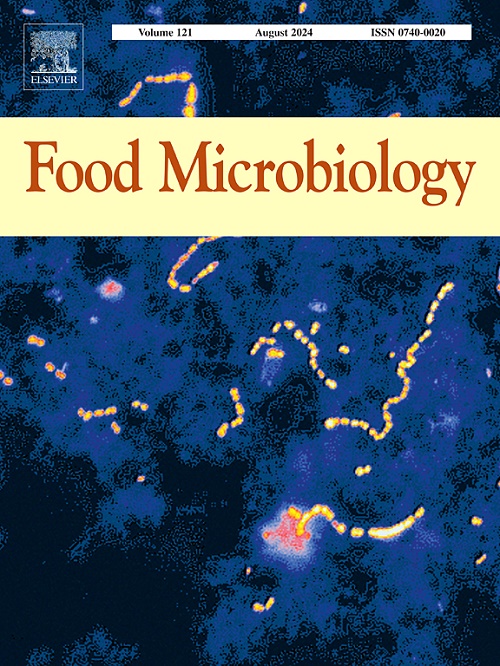Enhancing the quality of dark tea through fermentation with Aspergillus niger: Unveiling aroma and taste characteristics
IF 4.5
1区 农林科学
Q1 BIOTECHNOLOGY & APPLIED MICROBIOLOGY
引用次数: 0
Abstract
Amidst the increasing demand for premium dark tea, the utilization of Aspergillus niger-inoculated fermentation has emerged as a potential solution to address the challenges associated with extended processing cycles and inconsistent quality. This study comprehensively investigated the efficacy and mechanisms of A. niger PW-2 inoculation in enhancing dark tea quality compared to spontaneous fermentation, using metabolomics, electronic tongue, molecular docking, and high-throughput sequencing. A. niger PW-2 shaped the fungal community within 7 days, degrading terpene glycosides and lactones while generating terpenoids and unsaturated fatty acids, which enriched the floral aroma of PW-2-inoculated fermentation dark tea (AF). Flavonoid degradation and reduced theaflavins/thearubigins levels in AF decreased astringency, while increased bitter dipeptides and isoflavonoids enhanced bitterness, and the accumulation of umami dipeptides and theabrownins improved umami taste perception of AF. Molecular docking identified key compounds responsible for astringency (kaempferol glycosides), bitterness (6″-caffeoylisoorientin, kaempferol 4′-glucoside 7-rhamnoside, dihydrodaidzein 7-O-glucuronide), and umami (3-O-p-trans-coumaroylalphitolic acid, dihydrodaidzein 7-O-glucuronide, 1-methoxyphaseollidin). Overall, A. niger PW-2 inoculation accelerates fermentation process and enhances flavor characteristics of dark tea, offering a promising approach for high-quality dark tea production.

求助全文
约1分钟内获得全文
求助全文
来源期刊

Food microbiology
工程技术-生物工程与应用微生物
CiteScore
11.30
自引率
3.80%
发文量
179
审稿时长
44 days
期刊介绍:
Food Microbiology publishes original research articles, short communications, review papers, letters, news items and book reviews dealing with all aspects of the microbiology of foods. The editors aim to publish manuscripts of the highest quality which are both relevant and applicable to the broad field covered by the journal. Studies must be novel, have a clear connection to food microbiology, and be of general interest to the international community of food microbiologists. The editors make every effort to ensure rapid and fair reviews, resulting in timely publication of accepted manuscripts.
 求助内容:
求助内容: 应助结果提醒方式:
应助结果提醒方式:


